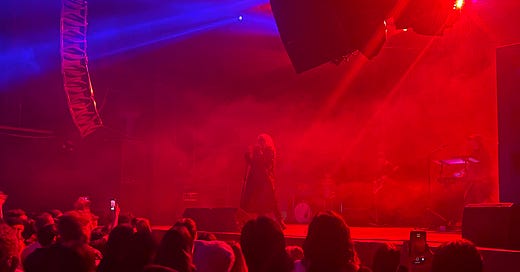Sky Ferreira & the Perils of Artist Development
Maybe "Artist Development" should be in quotes
I went to see Sky Ferreira play on Sunday, December 3, at the Masquerade in Atlanta, the wrong venue for an artist who’s trying to find her footing after a dysfunctional and destructive 14-year relationship with Capitol Records.
Some of you really don’t like it when I write about how the music industry treats women artists, so consider this a warning. Sk…
Keep reading with a 7-day free trial
Subscribe to Stars After Stars After Stars to keep reading this post and get 7 days of free access to the full post archives.





